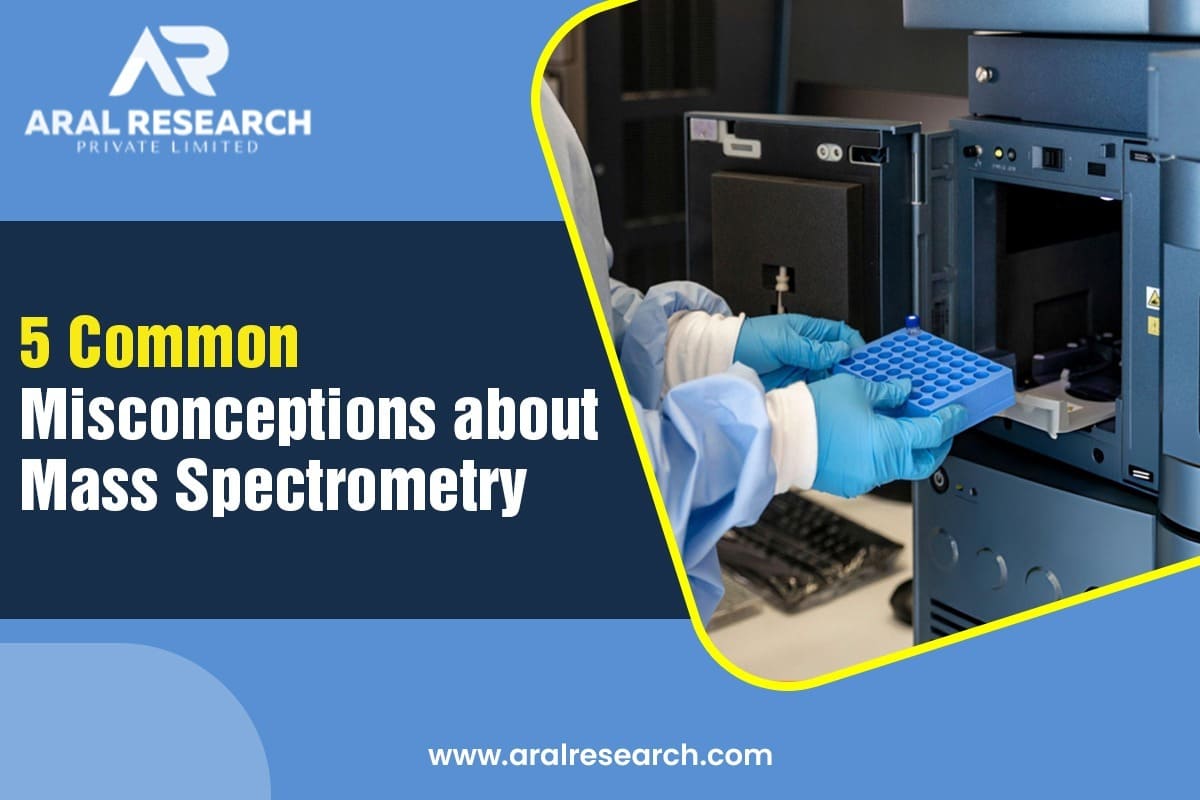
5 Common Misconceptions about Mass Spectrometry

Mass spectrometry, a powerful tool in scientific research, plays a pivotal role in identifying the mass-to-charge ratio. It is a widely accepted research technique in various sectors, including forensic science, pharmaceuticals, metabolomics, clinical research, life sciences, and more. Despite its proven benefits, some researchers remain sceptical of mass analysis due to preconceived notions that have caused certain misconceptions about mass spectrometry. In this article, we aim to debunk these misconceptions and highlight the numerous advantages of mass spectrometry.
Debunking 5 Common Misconceptions about Mass Spectrometry
Misconception 1: “Mass Spectrometry is Too Complicated”
Many analytical labs have concerns related to mass spectrometry as they think it is too complicated to work with. Although the process of ionization, acceleration, deflection, and detection can be challenging, mass spectrometers take care of all of these. Undoubtedly, mass analysis is one of the most effective and user-friendly analytical methods. The staff only needs to put the sample into the equipment.
Misconception 2: “Mass Spectrometry Needs Too Much Space”
Analytical labs may have limited space, but the latest mass spectrometers are compact and designed to make the most of the space without impacting data integrity. At Aral Research, our mass analysis in Ahmedabad uses top-notch mass spectrometers for their high-resolution capabilities, compactness, and ability to handle complex samples without taking up much space. We help clients with their research that can be done with mass spectrometry, offering a new perspective on hypotheses.
Misconception 3: “Mass Spectrometry is Too Expensive”
Researchers and labs often have a notion that mass spectrometry is expensive and the process is too slow. However, this is a misconception. In reality, mass spectrometers are highly effective and cater to complex research demands, making them a valuable investment. With mass spectrometry, researchers benefit from automation and optimization that is more efficient than affinity-based assays. With more data collected at the same costs, traditional analytical methods make MS analysis more economical, providing a high return on investment.
Misconception 4: “Mass Analysis Takes Too Long”
Assays need separate kits for the analysis of multiple samples. Advancements in mass technology, like the shift from data-dependent acquisition (DDA) to data-independent acquisition (DIA) techniques, improve the signals from less abundant molecules to enhance the amount of data collected from each sample. MS analysis is now scaling rapidly with enhancements in workflows, automation, and parallelization. At Aral Research, our analytical testing laboratory, we have extensive experience in large-scale analysis empowering large-scale studies, research, and discovery & drug development.
Misconception 5: “ GC-MS/MS Works Just Fine”
Many labs use mass spectrometry but are hesitant to move from GC-MS to LC-MS/MS. Though there is absolutely no problem with that, gas chromatography is a complex sample prep method and is labour-intensive. This can add costs and restrict testing to a finite amount of compounds. LCMS analysis in Ahmedabad supports more extensive molecule testing, offering greater capabilities for classifying analytes in different compounds in a single run.
It is time to transition to mass spectrometry as a part of routine compound testing and analysis. From verifying and validating biomarkers to enhancing the identification of unknown compounds and the discovery of new drug candidates, mass spectrometry plays a pivotal role. If you need analytical support for your research, we’re here to help. Call us today to learn more about how mass spectrometry can benefit your work.
Visit:- Application of NMR Spectroscopy
